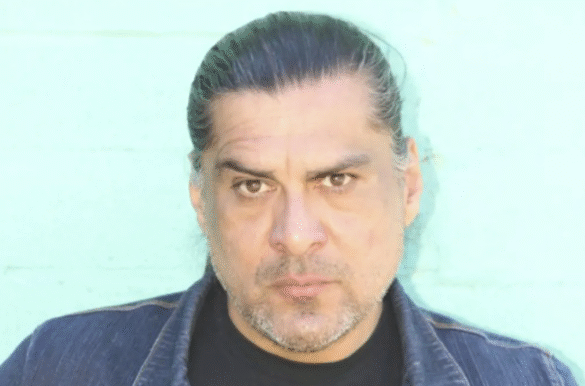Jonathan Joss, the Native American actor best known for voicing John Redcorn on the animated series “King of the Hill,” was fatally shot on June 2, 2025, outside his former home in San Antonio, Texas. The incident occurred during an emotional visit to the property, which had been damaged by fire earlier in the year. Joss, 59, was confronted by a neighbor with whom he had a longstanding dispute, leading to a fatal shooting. The suspect, Sigfredo Ceja Alvarez, was arrested and charged with murder. While Joss’s husband alleges the attack was motivated by homophobic slurs, police investigations have found no evidence supporting this claim. The case has drawn significant attention due to Joss’s notable career and the circumstances surrounding his death.
Details of the Incident
On the afternoon of June 2, 2025, Jonathan Joss visited his former residence in San Antonio, Texas, a property that had suffered fire damage earlier that year. The visit was described by acquaintances as emotional, as Joss was reportedly assessing the extent of the damage. During this visit, a confrontation occurred between Joss and a neighbor identified as Sigfredo Ceja Alvarez. The dispute, which stemmed from a longstanding conflict between the two individuals, escalated quickly and resulted in Alvarez fatally shooting Joss at the scene.
Arrest and Charges
Authorities responded rapidly to the incident and arrested Sigfredo Ceja Alvarez shortly after the shooting. He has been formally charged with murder in connection with the death of Jonathan Joss. Law enforcement officials have maintained that the case is still under active investigation, with detectives seeking to fully understand the events leading up to the shooting.
Investigations into Motive
In the aftermath of the shooting, Joss’s husband alleged that the attack was fueled by homophobic slurs and bias. However, San Antonio police have reported that their current investigation has uncovered no evidence supporting hate-related motives in the case. Investigators are continuing to examine all possible angles, including the history of disputes between Joss and Alvarez, but so far the evidence points to a longstanding personal conflict rather than a bias crime.
Community and Industry Reaction
The news of Jonathan Joss’s death has resonated throughout the entertainment industry and among Native American communities. Joss was widely recognized for his role as the voice of John Redcorn, a character on the popular animated television series “King of the Hill,” which brought visibility and representation to Native American culture in mainstream media.
Fans, colleagues, and community leaders have expressed their condolences and remembered Joss’s contributions to the arts. Many have also called for a thorough and transparent investigation into the circumstances of his death, reflecting on the broader issues of safety, conflict resolution, and community well-being.
Background on Jonathan Joss’s Career
Jonathan Joss, aged 59 at the time of his death, had a prolific career as an actor and voice artist. Beyond his iconic role in “King of the Hill,” he contributed to numerous projects that highlighted Native American stories and perspectives. His work was praised for its authenticity and respect for cultural representation, making his passing a significant loss to the artistic community.
Ongoing Developments
The San Antonio Police Department has indicated that the investigation is ongoing and that updates will be provided as new information becomes available. Both community members and fans are urged to stay informed through official channels. The case serves as a reminder of the complexities surrounding violence and the importance of addressing personal disputes before they escalate.
The tragic death of Jonathan Joss marks a significant loss for both the entertainment industry and Native American communities. While the investigation into the circumstances surrounding his shooting continues, current evidence points to a personal dispute rather than a hate crime. The case highlights the need for careful examination of conflict situations and underscores the importance of community safety and justice. As authorities pursue further inquiries, the legacy of Joss’s contributions to cultural representation and the arts remains a poignant reminder of his impact.

